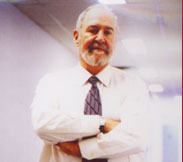July 10 - 21, 2000
Robarts Centre for Canadian Studies
York University, Toronto, Canada
SI Co-directors:
• Daniel Drache, Director, Robarts Centre for Canadian Studies
• Jean Daudelin, Senior Researcher, North South Institute and Adjunct Professor, Norman Patterson School of International Affairs, Carleton University
Summer Institute 2000:
• Detailed Program
• Readings and Materials
A Successful Year
The Summer Institute on Hemispheric Integration and Social Cohesion was a major step toward the goal of establishing hemispheric studies at York university and of broadening the participants knowledge-base of Canada.
Who Took Part
Eighteen scholars from Mexico, Cuba, Peru, Argentina, Brazil, Venezuela, the United States and Quebec attended the Summer Institute. The alumni of our second institute are Santiago Perez (Cuba), Graciela Bensusán, Silvia Núñez García (Mexico), Mercedes Botto, Khatchik Der Ghougassian (Argentina), Paulo Krishke, Maria Mattiolo, Amançio de Oliveira, Allesandro Ortuso, João-Paulo Peixoto, Magda Zurba (Brazil), Franz Kumdmüller (Peru), Lucie Lamarche, Sylvie Paquerot, Natalia Sandoval (Quebec), Vilma Petrásh (Venezeula), Carol Wise, Jonas Zoninsein (United States).
In addition, we had a strong contingent of York faculty including: Joyce Zemans (Fine Arts), David Bell (Environmental Studies), Charles McMillan (Schulich), Tom Legler, Viviana Patroni and Alan Simmons from CERLAC. Albert Berry, who is the Director of the University of Toronto's Latin American studies program and one of the most distinguished developmental economists, also participated fully for the day.
Two important Toronto personalities participated as experts: Anne Golden (President of the United Way of Greater Toronto) on homelessness and Michael Adams (President of Environics Research Group) on Canada and United States values. In addition, Terry Sullivan, Director of the Institute for Work and Health, Nobina Robinson, Director of FOCAL, Cal McWilliam from CIDA and Laura McDonald, head of North American studies at Carleton University, Ottawa made presentations. Jean Daudelin from the North-South Institute was a participant throughout the Institute and is a noted authority on the hemisphere.
Daniel Drache, Director of the Robarts Centre and Professor Ed Dosman, of the York Centre for International and Security Studies were co-director-organizers of the Summer Institute. Laura Taman, the Project Co-ordinator at Robarts, acted as the primary administrator of the Institute and Daniel Martinez, a graduate student in Political Science, helped tremendously during the time that our visitors were present. In all, approximately 40 people participated in the work of the second Summer Institute.
Goals and Outcomes
This year's Institute has a very large number of Brazilians attending. As Brazil dominates the southern hemisphere and plays a leading role in social and economic integration, their participation brought a unique perspective on the costs of social integration and economic liberalism, both of which are major issues in the hemispheric economic project. We were also very fortunate to have the participation of six outstanding graduate students, each of whom prepared a paper. Both the quality and level of sophistication had a major effect on the group dynamics and deliberations. Throughout the Institute, the interaction with senior policymakers and experts, who were invited from Toronto, Ottawa and Montreal, permitted the participants from Latin America to have a frank discussion of the policy implications of integration and multilateralism.
The major accomplishments of this Institute were: the establishment of a policy network of senior scholars, graduate students and policy makers; a web site with more than twenty papers and articles written for the Summer Institute by participants and others; an undertaking by participants to hold regional meetings of the network in the coming year; and the publication of a major scholarly volume with Routledge, Hemispheric Integration and Social Exclusion in a Turbulent Environment.
Looking Forward
The Summer Institute represents an important step forward in the development of Canadian Studies under the new conditions of hemispheric integration. We are at the beginning of forging links and building a network to facilitate academic co-operation and exchange at the faculty, doctoral and postdoctoral levels. The Robarts Centre will continue cooperating with the Canadian Studies Associations and Centres from Mexico, Brazil, Argentina, Uruguay, Cuba, Spain and Chile in the organization of Institutes. The Robarts Centre has established its own network of contacts and invites applicants to apply directly to the Robarts Centre.

Hemispheric Integration and Social Cohesion Summer Institute
Building the New Agenda: Summer Institute 2000

.gif)